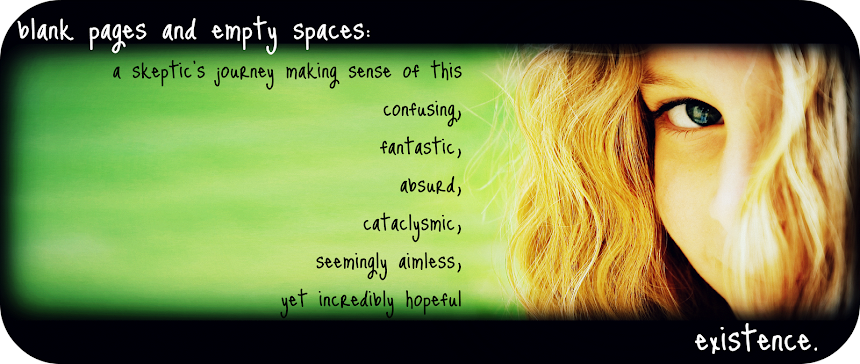- slept in (until 9:30am!)
- read a couple chapters of "Dead Souls" by Gogol, which is a hilarious Russian piece of satire.
- drank some french press coffee in the meantime.
- read some of Bearing Fresh Olive Leaves (have both agreements and disagreements concerning his opinions)
- Listened to good ol' Baroque music, as well as a couple sacred choral ensembles while I read, which I highly recommend.
- Is something moral because God says so, or does God say so because it is moral?
My opinion is still forming on this issue. Kierkegaard's thought about the teleological suspension of the ethical (the idea that God is above human ethics and that humans can be permitted to do unethical things because God commands it, like the Abraham sacrificing Isaac story) makes sense on paper, but the problem I have is: How does one know if a "suspension of the ethical" was truly God-ordained? Any person who is mad and intends to do harm can claim that God destined him to perform this act of harm. If Abraham were alive today and sacrificed his son Isaac in God's name, we all would think he was a nut-case.
I do believe that morality is subjective in some ways, because something that could be immoral in one circumstance is permissible and even necessary in another circumstance.
An example of this would be if a man was dying of starvation and came upon a grain field or an apple orchard that was cultivated by a landowner. Is it morally "right" for this man to steal from another's production to feed himself, and even steal the seeds from that fruit to cultivate for his own food?
Aka: Is it morally acceptable for this starving man to steal from a man who has plenty in order to survive? Technically, no, this would not be acceptable. But in theory, and even in reality, we all might permit it.
I am interested in a diversity of opinion and dialogue on this matter. But this I believe: that morality has flux, cannot be contained in a black and white picture, if you will, contrary to popular belief. Something that is immoral in one culture is perfectly moral in another culture, and that is okay with me. The Bible does not have easy answers to philosophical questions, contrary to popular belief. And that the Bible does not have all the answers, period, contrary to popular belief. The Bible is literary in nature, which is interpretive. So we must think, interpret, guide, perceive, and reckon with each other and for ourselves.



